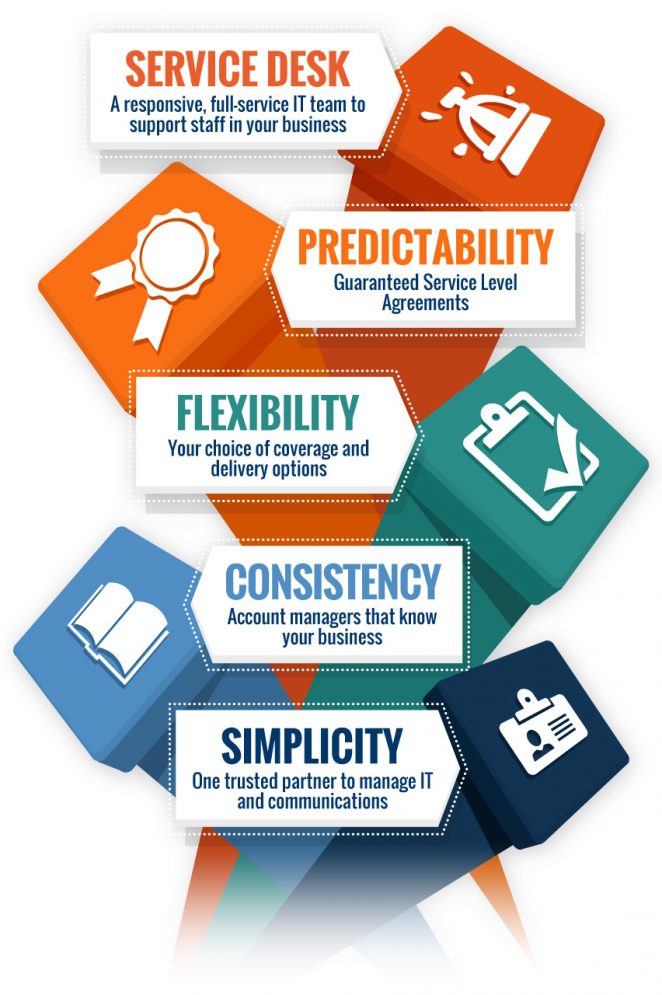Before we go onto the main point of this article, let’s first take a look at what managed IT services are. Managed IT service is when a company outsources specific IT functions to a provider often referred to as the Managed Service Provider or MSP for short. These functions might be quite simple, like keeping the technology equipment and other things functional to all the way up to total IT outsourcing. Their main goal is to either work as an in-house IT team for a business that has no internal support or capabilities of an experienced IT team.
The most common types of services
The type and number of services a business might need from an MSP will depend on the internal IT capabilities and goals. However, here are the most common services that a company requests:
1. Data Backup
These backup services retain and protect data and it also allows you to recover data that is as small as a single file or as large as an entire database. The services will also provide an additional layer of security and accessibility in case of an event where your data might be lost or if there is a cyber attack on your company. It makes sense to outsource the secure data backups in order to take advantage of the technology and service an MSP can offer.
2. Help Desk Solutions
Most companies that hire managed IT service providers have no or little IT knowledge and resources on their own. The providers will offer help desk solutions as a way to allow customers to access an IT specialist that will help troubleshoot their problems on-site or remotely.
3. IT Support Services
These services are quite helpful when you need to combine IT guidance and support. The MSP will be responsible for managing and fixing devices and at the same time, they will provide insight into how the systems should work.

4. Network Security
According to the experts from SMB Integration, this service will free your IT resources by outsourcing tasks like network intrusion detection and prevention, spam or virus eradication, content filtering, and traffic analysis through a next generation or traditional firewall.
5. System Management
The outsourcing will allow your chosen MSP to monitor your networks, servers, and applications. They will check the data and the real-time metrics in order to solve any problems before they cause downtime, delays, or before they majorly impact your business operations.
The benefits of hiring an MSP
There are various benefits to hiring these providers and here are some of them:

1. Cost Savings
Working with these people will be less expensive than hiring someone new. It is usually a monthly cost that is easy to calculate or predict the budget for, and it can actually save your company a lot of money and time. MSPs also reduce the downtime that might happen during an IT problem, which can be quite cost saving for your company.
2. Risk Management
The MSP in your company will manage and monitor your systems, which means that they will be ready to solve any problem before that problem becomes a costly one for your company.
3. A Plan for the future
They will be able to provide you with guidance on how your IT departments should support your company’s goals and needs.
Conclusion
As you can see, by hiring an MSP, you will be able to save a lot of time and money, make it easier for your employees to do their jobs, as well as avoid costly repairs and delays.
 Vermont Republic Second Vermont Republic
Vermont Republic Second Vermont Republic




